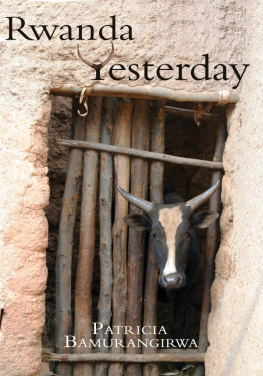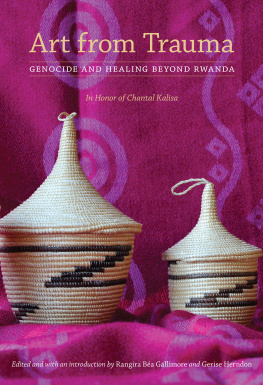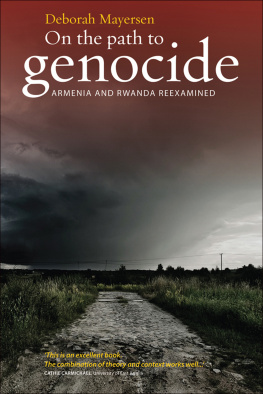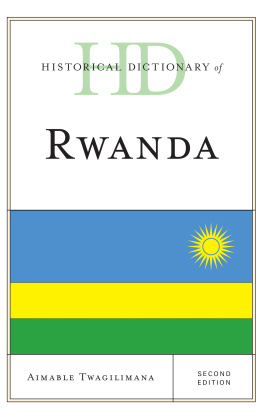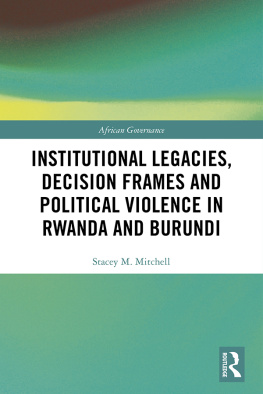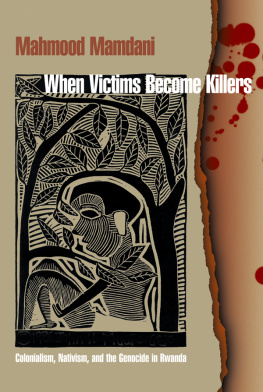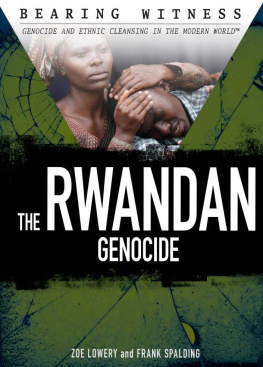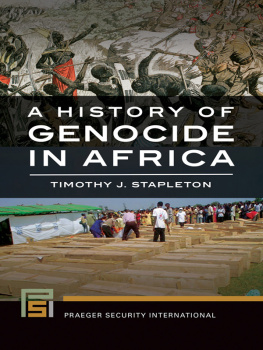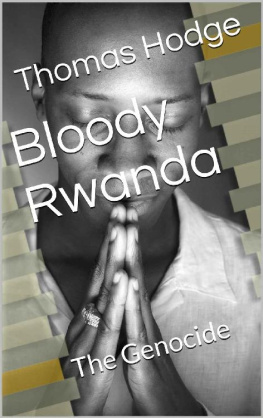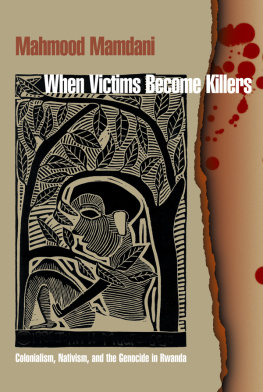Entanglements of Modernity, Colonialism and Genocide
This book offers a novel sociological examination of the historical trajectories of Burundi and Rwanda. It challenges both the Eurocentric assumptions which have underpinned many sociological theorisations of modernity, and the notion that the processes of modernisation move gradually, if precariously, towards more peaceable forms of cohabitation within and between societies. Addressing these themes at critical historical junctures precolonial, colonial and postcolonial the book argues that the recent experiences of extremely violent social conflict in Burundi and Rwanda cannot be seen as an object apart from the concerns of sociologists, as it is commonly presented. Instead, these experiences are situated within a specific route to and through modernity, one entangled with Western modernity. A contribution to an emerging global historical sociology, Entanglements of Modernity, Colonialism and Genocide will appeal to scholars of sociology and social theory with interests in postcolonialism, historical sociology, multiple modernities and genocide.
Jack Palmer is a teaching fellow in sociology at the University of Leeds, UK. His research interests lie in theoretical debates concerning experiences, interpretations and trajectories of modernity, in the sociology of colonial-imperialism, and in genocide studies.
Classical and Contemporary Social Theory
Classical and Contemporary Social Theory publishes rigorous scholarly work that re-discovers the relevance of social theory for contemporary times, demonstrating the enduring importance of theory for modern social issues. The series covers social theory in a broad sense, inviting contributions on both classical and modern theory, thus encompassing sociology, without being confined to a single discipline. As such, work from across the social sciences is welcome, provided that volumes address the social context of particular issues, subjects, or figures and offer new understandings of social reality and the contribution of a theorist or school to our understanding of it.
The series considers significant new appraisals of established thinkers or schools, comparative works or contributions that discuss a particular social issue or phenomenon in relation to the work of specific theorists or theoretical approaches. Contributions are welcome that assess broad strands of thought within certain schools or across the work of a number of thinkers, but always with an eye toward contributing to contemporary understandings of social issues and contexts.
Series Editor
Stjepan G. Mestrovic, Texas A&M University, USA
Titles in this series
The Iron Cage Revisited
Max Weber in the Neoliberal Era
R. Bruce Douglass
Entanglements of Modernity, Colonialism and Genocide
Burundi and Rwanda in Historical-Sociological Perspective
Jack Palmer
Lost in Perfection
Impacts of Optimisation on Culture and Psyche
Edited by Vera King, Benigna Gerisch and Hartmut Rosa
For more information about this series, please visit: https://www.routledge.com/sociology/series/ASHSER1383
Entanglements of Modernity, Colonialism and Genocide
Burundi and Rwanda in Historical-Sociological Perspective
Jack Palmer

First published 2018
by Routledge
2 Park Square, Milton Park, Abingdon, Oxon OX14 4RN
and by Routledge
711 Third Avenue, New York, NY 10017
Routledge is an imprint of the Taylor & Francis Group, an informa business
2018 Jack Palmer
The right of Jack Palmer to be identified as author of this work has been asserted by him in accordance with sections 77 and 78 of the Copyright, Designs and Patents Act 1988.
All rights reserved. No part of this book may be reprinted or reproduced or utilised in any form or by any electronic, mechanical, or other means, now known or hereafter invented, including photocopying and recording, or in any information storage or retrieval system, without permission in writing from the publishers.
Trademark notice: Product or corporate names may be trademarks or registered trademarks, and are used only for identification and explanation without intent to infringe.
British Library Cataloguing in Publication Data
A catalogue record for this book is available from the British Library
Library of Congress Cataloging in Publication Data
Names: Palmer, Jack Dominic, author.
Title: Entanglements of modernity, colonialism and genocide : Burundi and Rwanda in historical-sociological perspective / Jack Palmer.
Description: Abingdon, Oxon ; New York, NY : Routledge, 2018. | Series: Classical and contemporary social theory | Includes bibliographical references and index.
Identifiers: LCCN 2017059131 | ISBN 9781138564329 (hbk) | ISBN 9781315122366 (ebk)
Subjects: LCSH: Ethnic conflict--Burundi--History. | Ethnic conflict-- Rwanda--History. | Genocide--Burundi--History. | Genocide--Rwanda-- History. | Burundi--History--20th century. | Rwanda--History--20th century. | Imperialism--Social aspects--History.
Classification: LCC HN796.Z9 S6273 2018 | DDC 304.6/63096757--dc23
LC record available at https://lccn.loc.gov/2017059131
ISBN: 978-1-138-56432-9 (hbk)
ISBN: 978-1-315-12236-6 (ebk)
For Yoshiko and Dot
This book began as a PhD thesis in 2013 in Leeds and was funded by a University of Leeds Research Scholarship. Formative questions, however, were elaborated during my undergraduate studies at the University of Portsmouth, and my attempts to answer them were guided and prompted by Sophia Wood. Without her, my journey to Leeds and to academia (and resultantly this book) would not have been possible. At Leeds, I have been fortunate to study and work in vibrant and convivial sociology department. I am grateful to Paul Bagguley, Adrian Favell, Yasmin Hussain, Ian Law, Salman Sayyid, Rodanthi Tzanelli, Andrew Wallace and Katy Wright for their interest in my work and their questions of it. I also drew great inspiration from the insightful and constructive critical comments and recommendations of Shirley Anne Tate. Austin Harrington has been generous with his time and I am very grateful for his deep engagement with the project at various stages. Attempting to respond adequately to his arguments has been immensely productive. I must also thank my supervisors, Mark Davis and Tom Campbell. The quality of their guidance, insight and friendship has helped me through tough periods in which my motivation and enthusiasm for the project were tested to their limits. I would also like to say a huge thanks to my friends and peers Emma Bimpson, Laura Connelly, Ieva Eskyte, Ben Hirst, Emily Maddox, Angelica Pesarini, Jenny Read, Robert Thornton-Lee and Remi Salisbury for their wisdom, companionship, humour and support.
Outside of Leeds, I am grateful for the discussions I had with Gurminder Bhambra at the 2015 meeting of the International Social Theory Consortium in Cambridge. I would like to thank William Outhwaite who was the external examiner for my thesis. Beyond asking penetrating questions of my work, his experience and encouragement made me believe that I could, and should, publish this book. At Routledge, I have been helped considerably by Neil Jordan, Alice Salt, Philip Stirups and Gail Welsh. I would also like to thank Stjepan Metrovi for his interest in the book as series editor, and also for his very thorough and provocative comments on the proposal.



